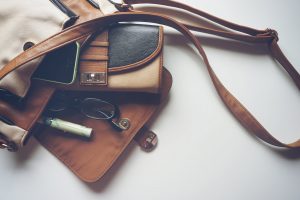After nearly a decade of legal battles, employees for Apple received a ruling in their favor when the U.S. Court of Appeals for the 9th Circuit held that California’s minimum wage law entitles them to be paid for the time they spend waiting to be searched and being searched when they leave the retail store. 
Our Los Angeles employment attorneys recognize this case could have far-reaching implications for employees in retail and other industries.
The class action case, Frliken et. al. v. Apple Inc., covers retail workers for Apple Inc. and was first filed in 2009. Key to the appellate court’s decision was the fact that Apple has a policy that requires employees who carry bags to work to undergo package and bag searches by supervisors or security staff at the end of each shift as a loss prevention method. Such actions are legal (so long as they aren’t applied in a way that is discriminatory) but employees can’t be expected to wait for and undergo these searches on their own time/at their own expense, the court ruled.
In general, these searches took anywhere from five to 20 minutes every shift, though some waited up to 45 minutes. Wait times varied depending on if there were others ahead of them whose bags needed to be checked and whether a manager was available to carry out the search. The one thing that was consistent: They were never paid for this time. The onus was on employees to ensure their bags were checked after each shift prior to leaving. If they owned Apple items, those items had to be placed aside and the serial numbers checked. Plaintiffs argued that both U.S. and California law entitled them to be paid for this time the same as if they were working.
Defendant employer argued that time spent waiting to be searched couldn’t be considered “hours worked” under state law because workers weren’t subject to the control of the employer nor were they required or even allowed to work. Plus, it was a condition that was only imposed on those who chose to bring a bag to work. The district court agreed with the employer on this, but plaintiffs appealed to the 9th Circuit.
The 9th Circuit certified the following question to the California Supreme Court: Should time spent by an employee on the employer’s premises waiting for and undergoing required exit searches brought to work for personal convenience should be considered “hours worked” under the state’s minimum wage law? Answer: Yes.
Central to the state supreme court’s finding was Industrial Welfare Commission Wage Order No. 7. This order states that employers are required to pay workers no less than minimum wage for all hours worked, with hours worked being any time a worker is subject to the employer’s control – including when the employee isn’t “suffered or permitted to do work.”
The question then was: Were the employees “under the control” of the employer while they were required to wait to undergo bag searches? The court concluded yes because the searches were mandated by the company as a practical matter that occurred on company property, they involved a substantial degree of control over the workers (who couldn’t leave without threat of discipline). Plus, the policy was mostly for the company’s benefit – not the workers’.
 Orange County Employment Lawyers Blog
Orange County Employment Lawyers Blog

